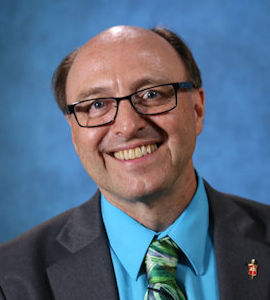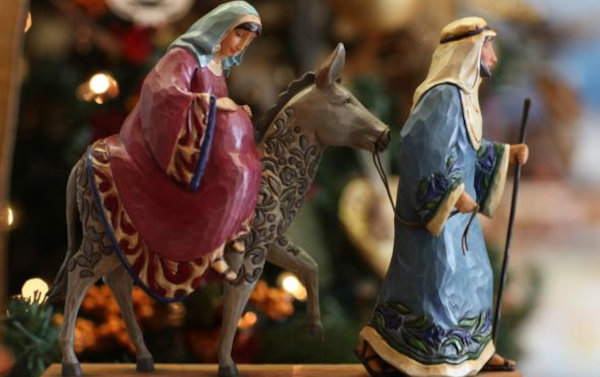In this month’s blog, “Open a little wider,” Bishop David Bard talks about the nature of being human.
BISHOP DAVID BARD
Michigan Area
 Humility. I am guessing if you dig deeply enough into an unabridged dictionary under the word “irony,” you might find it defined as a person with power writing about humility. I get it. There is something rather wobbly about a bishop writing about humility.
Humility. I am guessing if you dig deeply enough into an unabridged dictionary under the word “irony,” you might find it defined as a person with power writing about humility. I get it. There is something rather wobbly about a bishop writing about humility.
Yet in recent weeks, I keep finding myself reflecting on humility. In my September blog here I wrote about the importance of humility to democracy. I have made two recent presentations, one on discussing difficult topics and one on preaching about justice, and in both humility had an important role to play.
Just before Thanksgiving I attended a summit sponsored by the North Central Jurisdiction of The United Methodist Church, “Why Water Matters.” The summit brought together a range of people to talk about the importance of water and how we must pay attention to how we are caring for this precious resource. Among the participants and leaders were Native Americans, some United Methodist and some not. Native American communities have often been at the forefront of recent struggles over water in places such as Standing Rock.
Anyway, during the summit, one Native American spiritual leader, who also provided leadership for the event, spoke often of the fact that “we are only human.” We are only human. We will make mistakes. We do not know everything there is to know. We learn. We grow.
As I have been thinking about humility, I have come to see its essence as two-fold. One essential element of humility is self-knowledge. The psychologist Robert Emmons writes: Humility is the realistic appraisal of one’s strengths and weaknesses – neither overestimating nor underestimating them. To be humble is not to have a low opinion of oneself, it is to have an accurate opinion of oneself. It is the ability to keep one’s talents and accomplishments in perspective, to have a sense of self-acceptance, an understanding of one’s imperfections, and to be free from arrogance and low self-esteem. (The Psychology of Ultimate Concerns)
The other essential element of humility is openness, being open to new learning, new growth. It is to understand that one can always learn more about the wonder and mystery of life and the love and grace of God. It is to understand that we can always see more broadly, feel more deeply, think more imaginatively, and love more profoundly. It is to know that we can always open our minds, our hearts, our spirits a little wider – to others, to God, and even to ourselves.
This time of year draws us toward humility. The seasons of Advent and Christmas overflow with images and echoes of humility. Mary, in saying “yes” to God opens herself up in unimagined ways to God’s grace, and to deep heartbreak. Joseph, in saying “yes” to God opens himself up to participating in a miraculous birth, to God’s grace and love, and to danger as his family is forced to flee his homeland. Those who tended the manger open themselves up to something beyond their reckoning as they gave shelter to a young pregnant woman and her husband. The shepherds open themselves up to having their world turned upside down as they listened to angel voices and followed them to the birth of Jesus. God seems to open God’s self up in new ways to humanity in the birth of Jesus. This birth happened in a backwater province of the Roman Empire, and the birth takes place amid animals. God has kind of a funny way of entering our lives and our world.
As I allow these stories, these images, these echoes to penetrate more deeply into my heart, mind and soul again this year, I pray for openness and for the courage to be more open to others, to the world, to my own experience, and, of course, to the Spirit of God. Such openness asks of us courage. “It takes courage to face up to one’s unconscious motivations, courage to face the motivations of others, courage to see the world in new ways” (Jonathan Lear, Therapeutic Action). I pray that I might see more broadly, feel more deeply, think more imaginatively, love more profoundly and in such openness be even more open to God’s Spirit and the self and world-transforming work of God’s Spirit.
Humility. Courage. Love. This season invites us to the adventure of living with humility, courage and love all in response to the God whose love enters our world again and again to open our hearts and minds a little wider.
Last Updated on November 7, 2023

